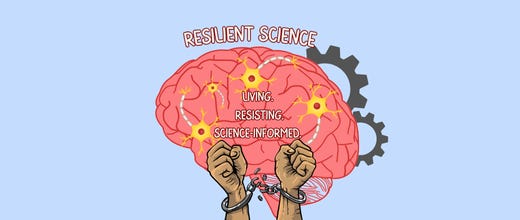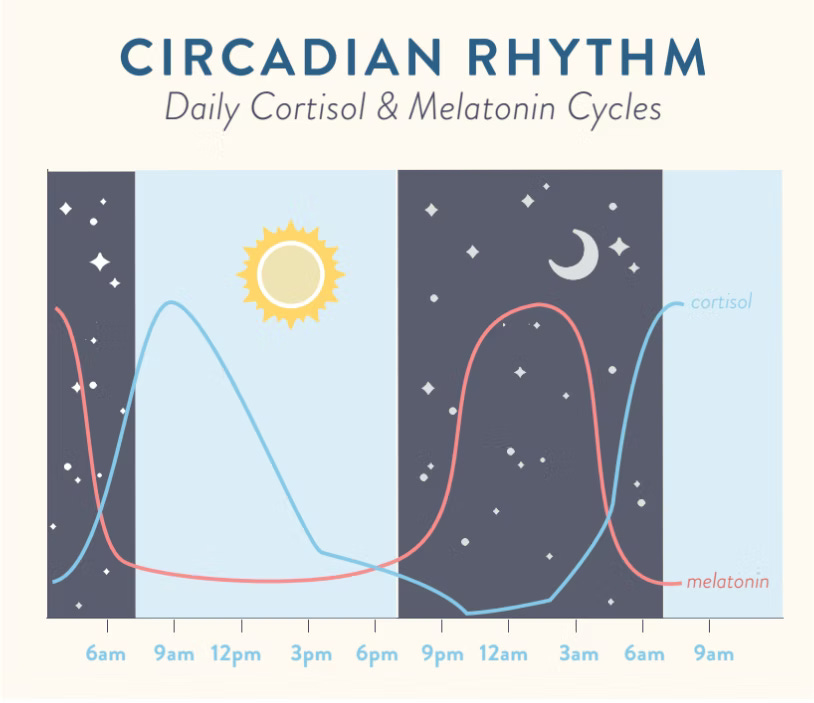Bipolar Basics: Sleep, Circadian Rhythm, and Seasons
Why staying up late might not just be a habit, and what it tells us about bipolar disorder.
Welcome to Resilient Science! I’m Diego. I was diagnosed with bipolar disorder back in 2017. After eight years of medication changes and therapist switches, I realized something big was missing from my healing journey.
See, I’m a molecular scientist, and I need to understand the science behind bipolar disorder if I want to truly understand myself.
That’s why I started this platform: to make the science of bipolar disorder accessible to everyone.
If you’ve read my earlier posts (Learning the Language of Bipolar Disorder), Bipolar Basics new series is an extension of those. Today we’re diving into sleep, circadian rhythm, and seasonal patterns.
What does it mean to be an evening chronotype? And what does that have to do with bipolar disorder?
Chronotypes and Their Misalignments
Chronotype refers to your natural preference for when you’re awake and alert. If you feel most energized at night, you likely have an evening chronotype.
As I mentioned in a previous post, humans are diurnal, meaning we’re biologically wired to be active during the day and sleep at night. But for many people with bipolar disorder, that pattern gets disrupted.
Altered circadian rhythms are common in bipolar disorder. This can show up as:
Delayed sleep phase (falling asleep and waking up much later than typical)
Irregular sleep-wake cycles
Evening chronotypes
Here’s the kicker: these rhythm shifts often show up even when someone isn’t in a manic or depressive episode.
Sleep Disruption and Mood Episodes
Sleep disturbances are one of the hallmark symptoms of bipolar disorder.
Insomnia, hypersomnia, and poor sleep quality often come before mood episodes. It’s not always this simple, but here's a common pattern:
Too little sleep → increased risk of mania
Too much sleep → increased risk of depression
Sleep isn't just a symptom. It’s a signal. Tracking changes in sleep can be one of the most powerful tools in predicting mood shifts.
Hormones and the Weather
Something fascinating I’ve been learning: people with bipolar disorder often show abnormal rhythms in melatonin and cortisol.
Here’s the breakdown:
Melatonin is your body’s natural sleep hormone, typically rising at night to help you fall asleep.
Cortisol is your stress hormone, usually peaking in the morning to help you wake up and be alert.
In bipolar disorder, these hormones can go out of sync, leading to further circadian misalignment and mood instability.
Seasonal Bipolar Disorder
About 1 in 4 people with bipolar disorder show seasonal patterns in their mood episodes. Here's what that often looks like:
More manic episodes in the spring and summer
More depressive episodes in the fall and winter
This pattern aligns with:
Lower circadian rhythm amplitude (weaker biological signals)
Delayed internal clocks during darker months
Fortunately, there are tools that can help:
Light therapy (especially in winter)
Structured routines (like consistent sleep and meal times)
Treatment Implications
There’s growing interest in chronotherapeutic approaches. These are treatments that target the body’s internal clock. Some examples include:
Light therapy in the morning
Dark therapy (reducing evening light exposure)
Interpersonal and Social Rhythm Therapy (IPSRT): a therapy designed to stabilize daily routines
Protecting your sleep, building consistent routines, and respecting your body’s rhythms are essential parts of any treatment plan.
There’s also promising research into medications that target the sleep-wake cycle, like melatonin receptor agonists, but these are still being studied.
Final Thoughts
If any of this resonated with you, you’re not alone. I’m building Resilient Science as a place where lived experience meets neuroscience.. and I’d love to hear from you.
What’s your relationship with sleep like? Have you noticed seasonal patterns in your moods?
Drop a comment, share this with someone you love, or just sit with it for a bit. You deserve understanding.




I say this as somebody who didn't sleep until 3am this morning: I can confirm that this is true.